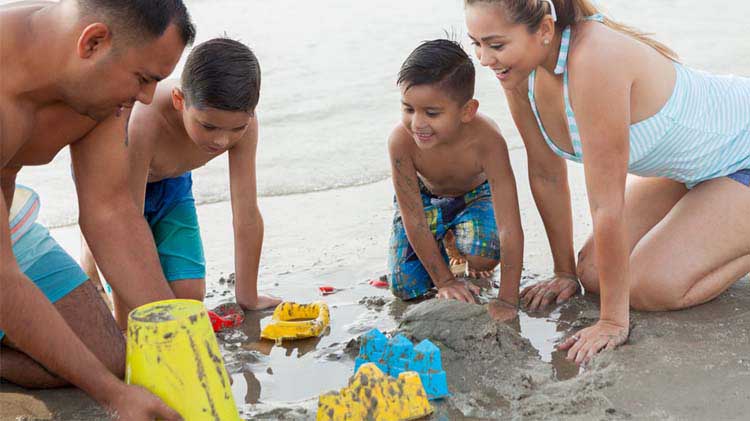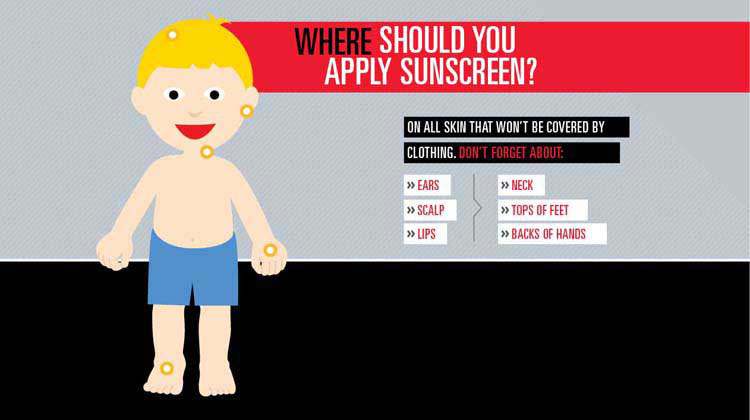The ultimate beach safety guide
Visiting the beach can be a great way to enjoy your summer. But remember, waterfronts come with their own set of hazards. Review these smart tips for beach safety, before hitting the beach, to help keep your family safe in the sun and surf.
Learn to swim
Learning to swim is the best way for you and your family to stay safe in and around water. The earlier kids learn to swim the better. And be sure that children are always supervised while in and near the water.
Look for lifeguards
You're almost five times more likely to drown when swimming without lifeguards. Especially when swimming in the ocean, where rip currents can be hazardous, stick to designated swimming areas with a lifeguard on duty.
Be sun smart
Use sunscreen with an SPF of 30 or higher, even on cloudy days. Reapply often, especially after swimming, to prevent serious burns and long-term sun damage. For additional protection, wear UV-protective clothing such as a wide-brimmed hat or rash guard.
Find some shade
When planning a long day at the beach, find a source of shade. Most beaches have umbrellas or tents available for a fee. Or you can bring your own. This will offer more protection from the UV rays and will also serve as a spot for your belongings.
Check beach conditions
Look for posted signs or beach warning flags to inform you of potential hazards. If you can, take the time to familiarize yourself with the meanings of each warning flag. When in doubt, ask the lifeguard where to swim and what to avoid. It's their job to spot dangers.
Buddy up
Use caution and don't swim alone at a beach or pool, even with a lifeguard present. A buddy swimming with you can quickly help if you're in trouble.
How to escape a riptide
If you get caught in a riptide, stay calm and do not fight the rip current, as they can be very powerful and rapidly pull you out to sea. Swim parallel to shore or tread water until you feel the current relax, then swim in at an angle.
Stay hydrated
Drink plenty of water, even if you don't feel thirsty — dehydration can sneak up on you in the hot sun. Be smart about alcohol, too, since it contributes to water loss and may impair judgment.
Rely on Coast Guard approved life jackets
Everyone should wear properly-sized life jackets on boats, and children and inexperienced swimmers should also wear them in and around water, particularly where waves can easily knock you over.
Don't dive
Go in feet-first to check for depth and obstructions. Hitting the bottom head-first can cause serious neck injuries.
React quickly
Drowning can be quiet and quick. If someone looks to be in trouble, yell for the lifeguard and try to help with a flotation device.
Always exercise caution in and around the water. Check out these other water safety tips.





